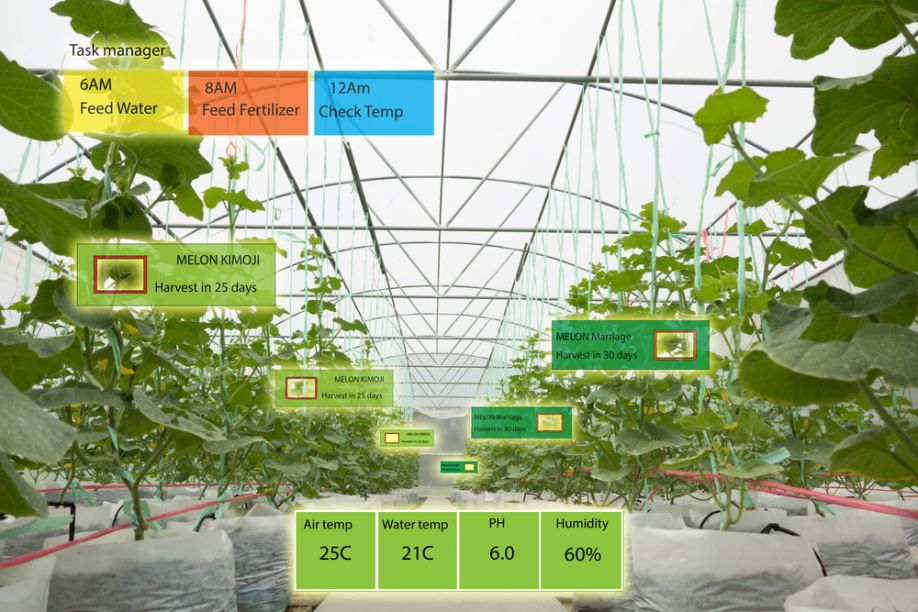5 Innovative Agritech For Small Farms

Smart agriculture (or agricultural technology – agritech, for short), is an innovative way for farmers of all shapes and sizes to maximize their yields using little resources (i.e. water, fertilizer, and seeds). With agritech, farmers are able to better understand their crops at a smaller scale, conserve resources, and reduce environmental impacts. And now, this technology has blended into smaller farms and producers.
In this article, we’ll talk about the 5 agritech innovations that have made it into the smaller farming community, and have increased their capacities to feed everyone in the world.
Specialized Drones
“Drones are growing more popular in the modern farming industry,” says Kathy Stein, an agricultural expert at Writinity and Last Minute Writing. “This is especially a growing trend in smaller farms. These special drones are used to collect data that researchers and farmers can use to improve their crops and farming methods.”
Such valuable data is comprised in a wide range of the following indicators:
- Biomass
- Chlorophyll rate
- Emergence rate
- Leaf area index
- Missing plants
- Water stress
- The height of crops, OR
- Flowering rate
Drones can also carry sensors (which we’ll cover later on in this article) that will detect any weeds, measure how little or much water that the fields have, and even forecast what crops will look like based on the trends collected and analyzed.
Digital Analysis
Precision is key to understanding one’s crops. That’s where digital analysis comes in!
Digitalization introduces precision agriculture, which provides the tools and data for small farmers and researchers to deeply analyze their farming practices. Here’s how this analysis works:
- First, information about the soil, water, and land features allows farmers and researchers to spot any variations across an area.
- In turn, the information helps producers understand the soil, and how it reacts to certain elements.
- As a result, farmers can make smarter decisions about how to farm, and how they can better handle their soil and crops.
While precision agriculture definitions may vary, digitalization is still an effective type of agritech for small farms to consider using.
Smart Sensors
Smart sensors are also making their way into small farms. Normally small enough to hold in your hold, these sensors are actually powerful enough to bring farmers high-quality measurements on how well their crops are doing. As a result, the sensors can bring researchers real-time information about crop requirements, such as water and nutrients.
In addition, the sensors can also do other things, such as:
- Use photographs taken by farmers to study an “unhealthy plant,” and research online for possible solutions to either treat it or discard it.
- Be “planted” in a field (or attached to a drone), so that it can provide a range of data for farmers.
- Enable farmers to make smarter, more cost-effective farming decisions.
Apps
There are many smartphone apps that are usable in the Internet of Things (IoTs), along with data aggregation and speedy processing to bring users up-to-date information, especially when some users are small farmers. As a result, apps dedicated to farming can handle the following tasks for farmers:
- Fertilizing
- Seeding
- Weeding, AND
- Watering
These apps can gather data from handheld sensors, remote sensors, and weather stations, giving farmers in-depth analyses and valuable recommendations on how to improve their practices.
Smaller (And Smarter) Machines
“As machines grow smarter in the farming industry, they’re also getting smaller,” says Matthew Philips, an innovation blogger at DraftBeyond and Researchpapersuk. “Smaller machinery like the Rowbot is specialized to fertilize, sow seeds, and mulch weeds. And, they can fit between crop rows and distribute fertilizer in small doses.”
Conclusion
Agritech is – and will continue to be – the future of farming, even as smaller farms are implementing them in their practices every day. As the demand for food continues to rise, it’s right for agritech to be used in today’s farming initiatives. As a result, precision agriculture has:
- Made it easier and cheaper to collect and use data
- Made it possible to adapt to the ever-changing conditions in the environment, AND
- Farmers implement their resources more effectively
As you can see, precision agriculture shows no signs of stopping any time soon; and agritech will be something that even the smallest of farms will need to succeed in their business and, eventually, be able to meet their mission to feed the world.

Ashley Halsey is a writer at Essay writing services UK and Gum Essays. As a professional writer, she has been involved in many projects nationwide. In her spare time, she enjoys reading and traveling with her two children.
Comments (0)
This post does not have any comments. Be the first to leave a comment below.
Featured Product

